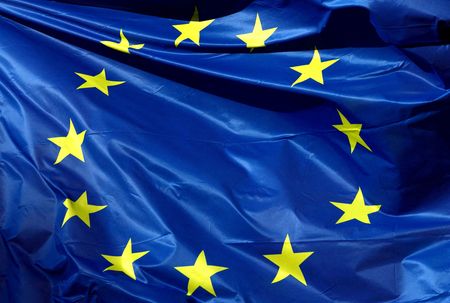By Philip Blenkinsop and Julia Payne
BRUSSELS (Reuters) – The European Union hopes to avert a damaging trade war with the U.S. over impending metals tariffs by prioritising negotiations rather than retaliatory countermeasures, EU officials signalled on Wednesday.
Ministers responsible for trade from the bloc’s 27 members met in a video conference on Wednesday to discuss the EU response to U.S. President Donald Trump imposing 25% tariffs on all steel and aluminium imports from March 12.
European Commission President Ursula von der Leyen has called those tariffs unjustified and said they would “trigger firm and proportionate countermeasures”.
An EU government official said ministers discussed potential measures, such as reinstating import duties imposed in 2018 on U.S. products from bourbon to Harley Davidson motorcycles in response to the first Trump administration’s tariffs on steel and aluminium.
Those EU measures were suspended after an agreement with the Biden administration. The Commission did not reveal much about its thinking, sources said.
Instead, the ministers broadly agreed that negotiation was the best option and that the bloc should present a united front.
“There is a window for negotiation ahead of the 12 March deadline,” Irish Foreign Minister Simon Harris said in a statement.
One EU diplomat said it was time to be “cool-headed,” with a month still to go before the tariffs take effect.
Also on Wednesday, EU trade chief Maros Sefcovic had a first call with U.S. counterparts – Commerce Secretary nominee Howard Lutnick, U.S. Trade Representative nominee Jamieson Greer and National Economic Council director Kevin Hassett.
“Cooperation is our preferred option. So, we remain committed to constructive dialogue and finding negotiated solutions, while protecting the EU interests – the same way the US is protecting theirs,” an EU spokesperson said, adding the parties had agreed to meet soon.
Carlos Cuerpo, Spain’s trade minister, told journalists in Poland on Wednesday that a general agreement on tariffs was needed.
“For that reason, we will continue with the dialogue,” he said.
German Economy Minister Robert was set to emphasise on the video conference the need to prevent a trade dispute and for the EU to show a united front.
“It remains important for the European Commission to hold talks with the U.S. administration in order to reach a solution regarding the tariffs,” Habeck’s ministry said.
“At the same time, it must make it clear – and the Commission has already announced this – that it has prepared countermeasures,” it continued.
The Commission has not given detail of its measures. One option would be to reactivate the tariffs the EU imposed in 2018 on products such as bourbon, motorcycles and orange juice. These were suspended under a truce agreed between von der Leyen and former U.S. President Joe Biden.
A European industry source said they expected the EU to make clear it was ready to retaliate but continue negotiations to broker a truce before any U.S. levies kick in.
The European Union is not the United States’ largest supplier of steel and aluminium, but exports are substantial.
The United States is the second-largest export market for EU steel, with annual shipments worth an average of about 3 billion euros ($3.10 billion) over the past decade. EU aluminium exports were worth 2.4 billion euros in the first 11 months of 2024.
Lobby group European Aluminium urged the European Commission to engage in immediate talks with U.S. counterparts to seek a resolution.
(Reporting by Philip Blenkinsop, Julia Payne, Jan Strupczewsk in Brussels, Rachel More in Berlin, Emma Pinedo and Aislinn Lang in Madrid; Editing by Bernadette Baum, Toby Chopra and Richard Lough)












